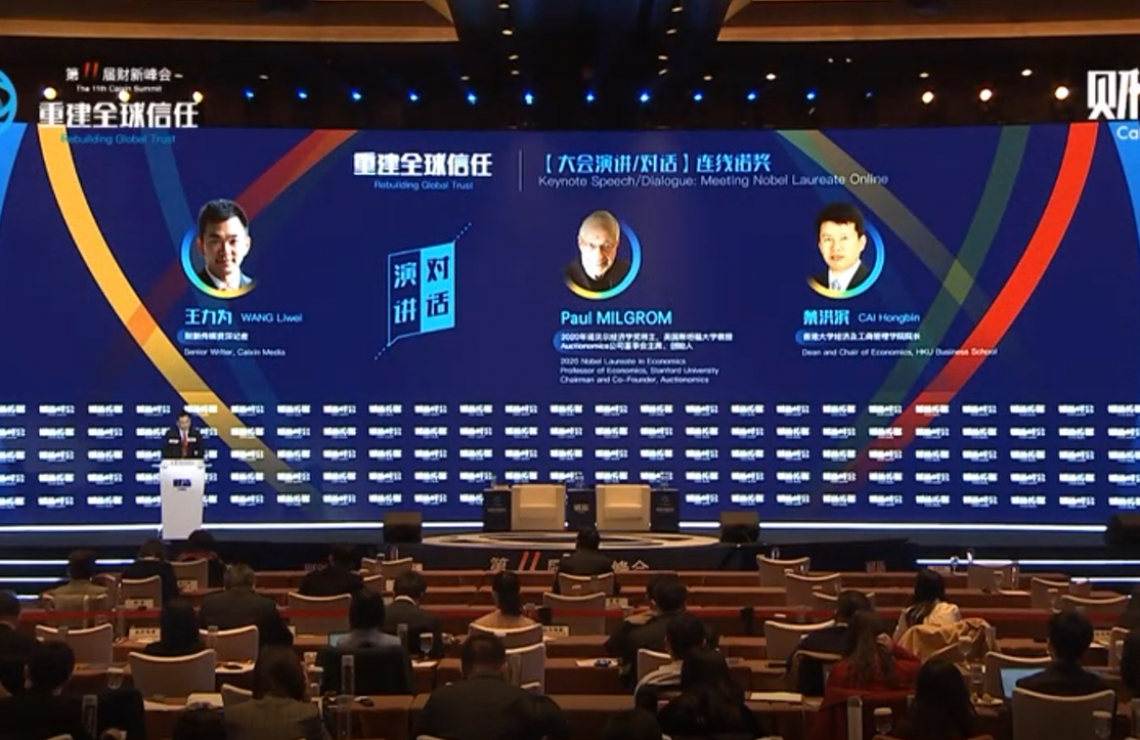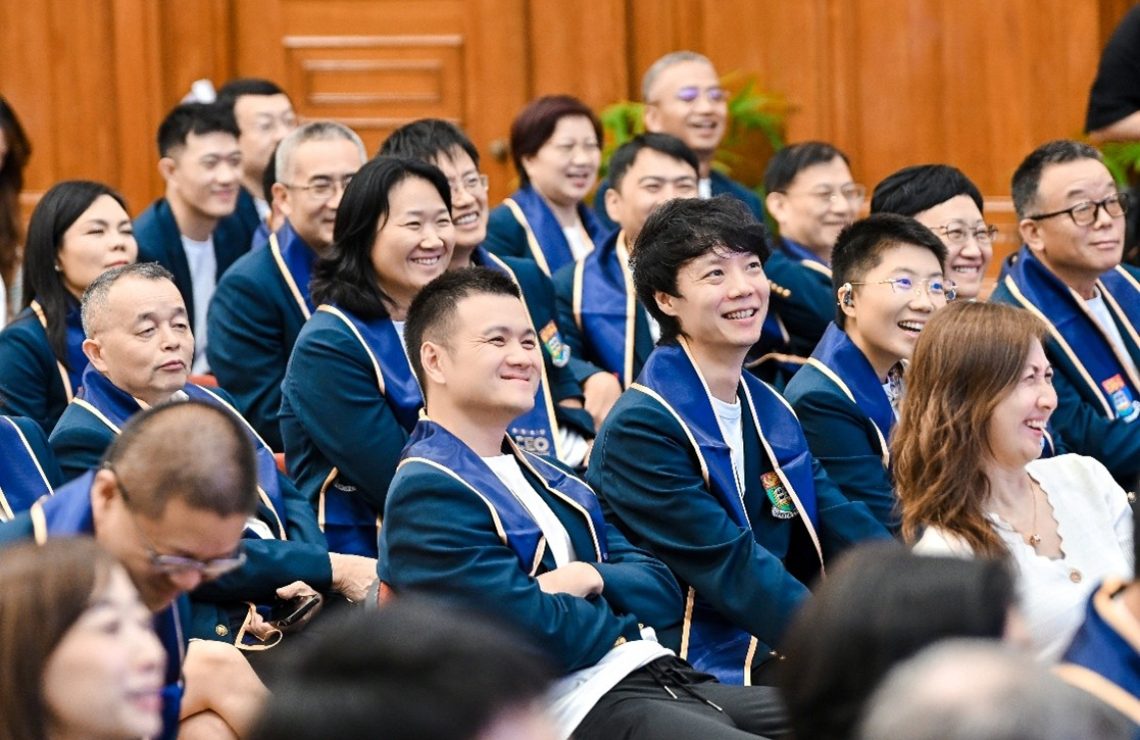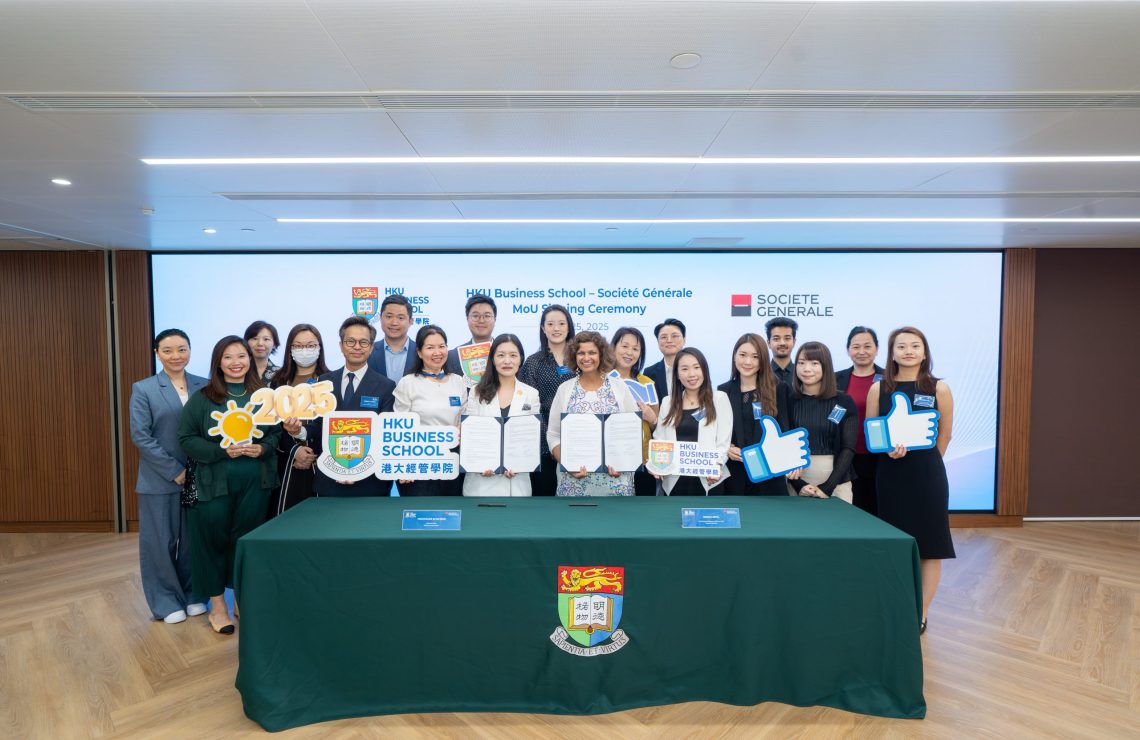
A Tale of Economics and Computer Science: Amalgamation of Interdisciplinary Knowledge and Application of Theories in Practice
The COVID-19 pandemic has subdued our physical economy, but mankind’s innovative spirit is indominable. On November 14, 2020, Professor Hongbin Cai, Dean of HKU Business School, and his PhD advisor cum 2020 Nobel Laureate in Economic Sciences, Professor Paul Robert Milgrom from Stanford University were invited for discussion at the 11th Caixin Summit “Rebuilding Global Trust” on the development of auction theory and the study of market design. Professor Milgrom spiced up the conference by sharing his Nobel Prize worth of masterpiece—a customised auction model that brings Genesis to the United States (US) broadcast landscape.
The auction model, invented by Professor Milgrom and his team, is a classic example of combining economic theory and cutting-edge computer science technology into practice. The project cost around 10 billion dollars but generated a revenue of approximately 20 billion dollars. Professor Cai applauded that the development of auction theories and its application is breathtaking throughout these decades. He believed that new and complex practical problems present new opportunities for economic research and analytical advancements. And at the same time, those researches and analysis can provide solutions to problems and challenges.
Professor Milgrom also shared the same view that the blending of academic theories with advanced technologies could be applied to improve social equity. Using the COVID-19 vaccine as an example, a customised auction system could be developed to ensure that the vaccine will be assigned to the groups with the most urgent need. Despite some questions about the ambiguity of macroeconomic theories, which are too abstract to be practical in general, Professor Milgrom pointed out that macroeconomic theories share great synergies with computer science. While computer scientists are good at making predictions under a ceteris paribus condition, theories from economics, political science, and psychology would be useful to make such predictions based on more realistic conditions.
Professor Cai also totally agreed with the observation of Professor Milgrom. He illustrated that economists are living in a time where interdisciplinary knowledge could be applied to practical issues way much easier than any time in history. There will be endless possibilities combing economic knowledge into machine learning and data analytics. As a closing remark, he urged us to keep up with the times and be open to new ideas.







